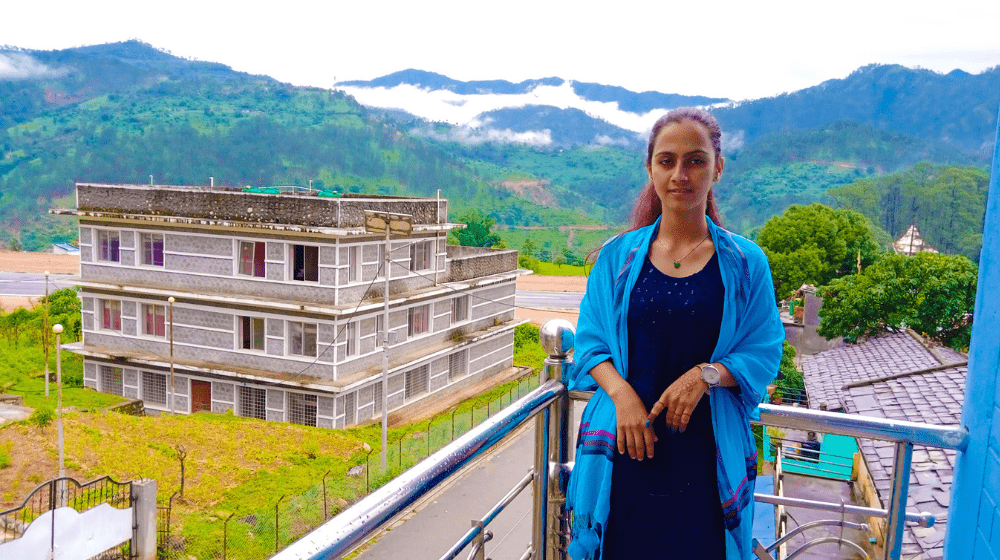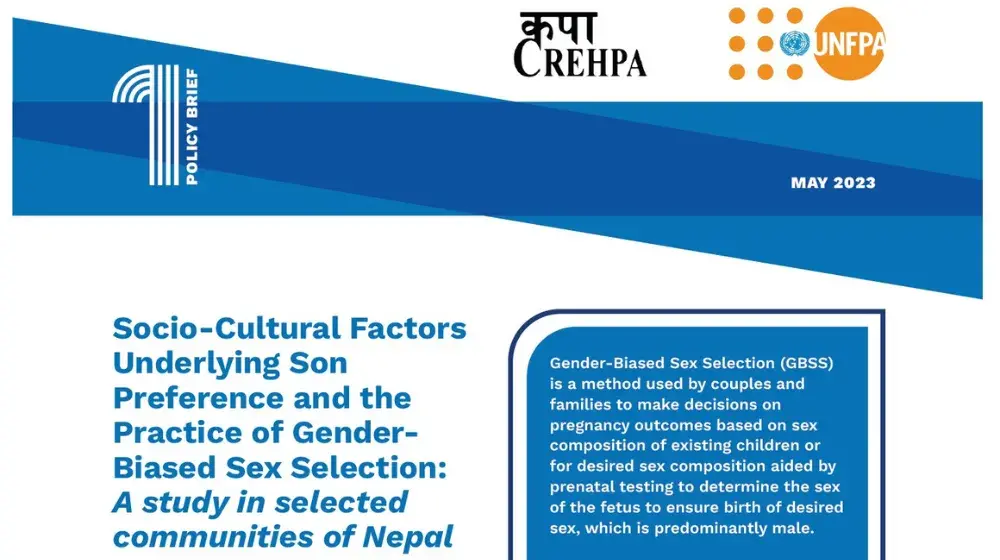Today, there are 1.2 billion young people aged 15 to 24 years, accounting for 16 per cent of the global population. By 2030, the number of youth is projected to have grown by 7 per cent, to nearly 1.3 billion.
In Nepal, young people account for approximately 20.8 percent of total population of the country (age group 16-25 years) while 40.68 percent of the population lies in the age group 16-40. This means for the first time in its history, Nepal is experiencing a demographic dividend - more specifically a ‘population dividend’ or ‘youth bulge’ which is a phenomenon where young people account for the largest segment of the population of a country.
This provides a unique opportunity for Nepal - an opportunity for young people to educate themselves, earn a sustainable living and contribute to the country.
Part of this transition into adulthood however lies in how young people have access to comprehensive sexuality education so they are better equipped to make informed decisions in relation to their bodies, and ultimately, their lives. Yet, in-school CSE is not available for many young people, not just in Nepal but in several other South Asian countries as well. Therefore young people rely on other means of educating themselves and as a result, they receive a range of conflicting and confusing messages about sexuality and gender. Lack of access to CSE can also lead to other dire consequences such as child marriage, teen pregnancies and other harmful practices that could undermine their ability to reach their full potential.
In response to this, *UNFPA and UNICEF have been rolling out a Government-endorsed social and financial skills programme referred to as ‘Rupantaran’ (meaning ‘transformation’). The programme taught out-of-school in Provinces 2, 5 and 7, contains 15 modules that are designed to empower adolescents through weekly sessions conducted by young social mobilizers and youth facilitators over a period of nine months.
Meet Prakash Badu. He is a 17 year old facilitator from Durgasthan in the Baitadi District of the Sudurpashchim Province, trained to deliver Rupantaran sessions to batches of 25 adolescents (boys and girls) since 2021.
A young person himself, Prakash takes great pride in his work and is committed to influencing change.
He is also an example that the peer education approach works and has generated clear results. For instance, through the programme, the facilitators also create a good rapport and understanding with the participating young people which gives them also insights into the lives of the Rupantaran attendees. This has allowed Prakash to prevent 3 child marriages in a year! Through his positive leadership, committment and influence, he has also advocated for a budget to be allocated from the Palika and the Ward office to conduct other campaigns and programmes on ending child marriage within the community and in his school. Recognizing the impact coming out of this programme, the school has now set up an Adolescent Friendly Information Center within the school premises, creating a safe space for young people.
Kunti Bhatt is another youth activist who is a Rupantaran Trainer in the Baitadi District. Through her interactions with different cohorts of young people attending the sessions, she has prevented more than 20 child marriages from happening within the area just by talking to the young people and the families involved, and advising them on why it can be harmful. She is also a staunch advocate on ending child marriage, gender-based violence and other harmful practices such as Chaupadi, and has also received an award of appreciation from the National Campaign against Dowry and Child Marriage.
“The education given to me by my teachers and trainers has been clear - "Invest in education not in the marriage of your daughter". I am thankful to those who have taught me and invested in me to make me who I am today. I now want to pass this on. I want to teach the same to the others and become an activist to end child marriage once and for all” says Kunti.
Prakash and Kunti are two of several other young people trained by UNFPA to serve as Rupantaran facilitators, who are now championing efforts to end child marriage in Nepal. They are not just role models for other young people but they are also vital members of the community in their respective areas - members who can make a difference! Some of them also go onto serve in other local Government positions where they can further influence more efforts to be done to end all forms of violence against women and girls.
This International Youth Day 2022, let’s recognize these youth leaders who go over and beyond to be the change they want to see. Young people are the cornerstone of society, and how well-equipped and informed they are with the right education, skills and experience will determine not just their success but also the future of the world. UNFPA remains committed to deliver a world where every young person’s potential is fulfilled!
For young people, by young people!
Ends
*Under the 2016-2030 Global Programme to End Child Marriage (currently in Phase II 2020-2023), jointly implemented with UNICEF and local partners in Nepal, UNFPA is working to promote policies and programmes designed to end child marriage.



